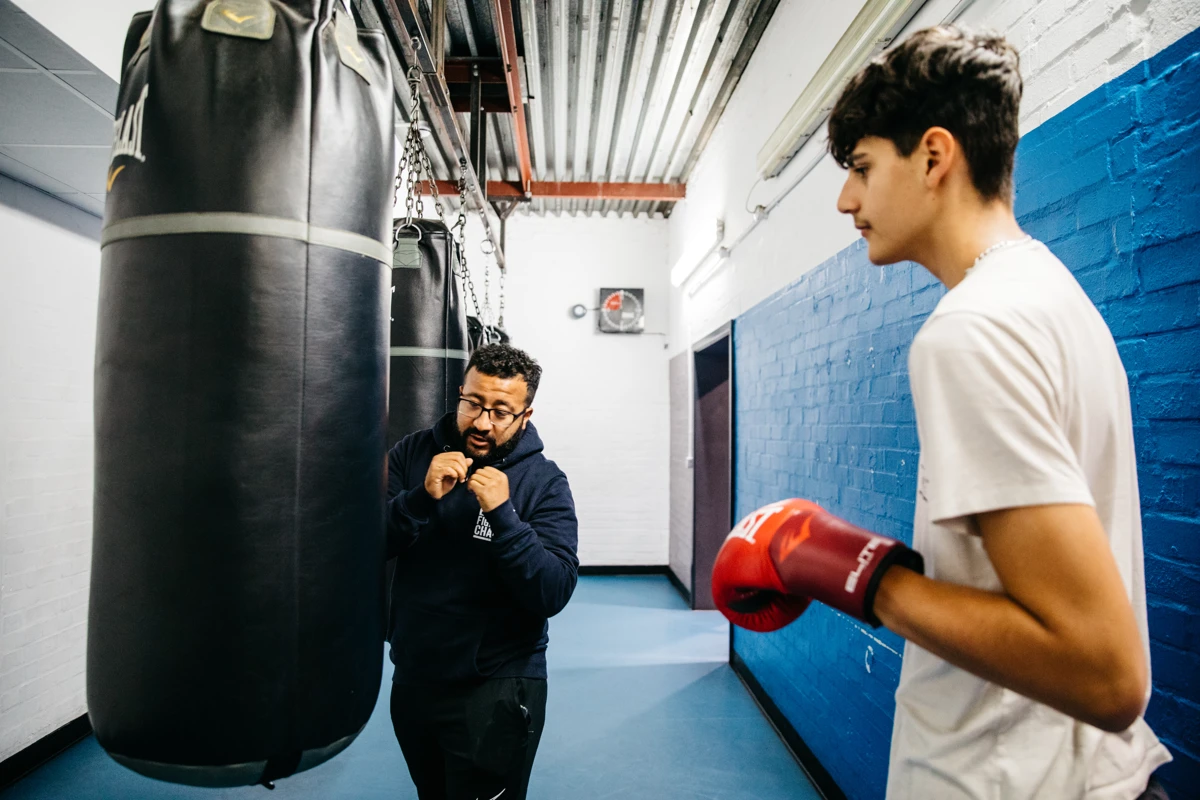Blog
Encouraging first steps from latest evaluation reports
Positive activities have the potential to reduce serious youth violence. As the YEF Toolkit explains, sports programmes have a ‘high’ average impact on youth crime and violence. We also know that across England and Wales there are so many organisations, large and small, that are working hard to provide sports, arts, wilderness or adventure activities to young people. 51% of youth sector organisations surveyed in the National Youth Sector Census (2021) reported providing sports and physical activities to young people. There are also over 800 Arts Council National Portfolio Organisations that deliver over 10,000 interventions to young people each year. These organisations aim to develop young people’s self esteem, their social skills, and provide a positive outlet.
However, we still have much to learn. Although there is emerging, promising evidence associated with some of these activities, there are large evidence gaps. For instance, we only have a ‘low’ level of confidence in our Toolkit estimate of high impact for sports interventions. There is a lack of high quality research, and a particular scarcity of studies from an English and Welsh context. This is why we recently launched the Positive Activities funding round. It will fund the delivery and evaluation of positive activity interventions from 2024 and further build the evidence base.
But the work to build this evidence has already begun. Today, YEF have published 11 evaluation reports, building on the 16 that we’ve published so far. These reports evaluate violence reduction interventions, and three of today’s batch provide encouraging emerging findings on positive activities.

The feasibility and pilot study of Rugby Football League’s Educate Mentoring Programme, an initiative that combines weekly mentoring sessions with sports for young people at risk of serious youth violence, features heartening findings. The evaluation, funded by YEF and delivered by Manchester Metropolitan University, showed the programme to be feasible and delivered as intended. The YEF is now exploring setting up a larger impact evaluation. YEF is also exploring setting up an impact evaluation of Empire Fighting Chance (EFC) following a similarly promising feasibility and pilot study. EFC combine non-contact boxing with mentoring for at risk young people, and Manchester Metropolitan University’s evaluation found their programmes to be feasible, well-attended, and well-perceived by participants. Finally, the University of Birmingham’s feasibility study on United Border’s ‘B.U.S’ intervention has also yielded encouraging findings. The B.U.S initiative offers at-risk 10-17 year olds the opportunity to make music and receive mentoring in a specially adapted bus. The evaluator found the programme to be feasible, with UB surpassing recruitment and delivery targets. A further pilot evaluation of the programme is underway.
There is still much work to do. None of these evaluations were designed to establish whether these interventions reduce serious youth violence. Rather, they explored the programmes’ feasibility and readiness for larger scale impact evaluation. But we can be heartened that the Rugby Football League, Empire Fighting Chance, and United Borders are all delivering feasible interventions, that are well-regarded by participants, and are ready for a larger, more robust test of their impact. We expect these future evaluations to build the evidence base and, eventually, allow us to answer: do positive activities reduce serious youth violence, and if so, how?
Read the evaluation reports:
- Empire Fighting ChanceFeasibility & Pilot study
Empire Fighting Chance
Non-contact boxing and mentoring for at risk young people.
- Rugby Football League: Educate Mentoring ProgrammeFeasibility & Pilot study
Rugby Football League: Educate Mentoring Programme
12 week mentoring programme delivered by the Rugby Football League
- United Borders: B.U.S programmePilot study
United Borders: B.U.S programme
A 10-week music mentoring intervention for 10-17 year olds.
- Blog
Blog:Teenage homicides in England and Wales fall to a decade low
At the Youth Endowment Fund, we’re working towards a world where all children can live a life free from violence. Every year, children across England and Wales are tragically killed in knife attacks or other forms of violence. However, last figures published from the Homicide Index suggest we’re moving rapidly in the right direction, with… - Blog
Blog:Trusted Adults Matter: PAC Wales and the Trusted Adult Walk
At Peer Action Collective (PAC) Wales, we value the role trusted adults play in young people’s lives. One consistent adult who listens, shows empathy, and follows through shapes how a young person seeks help and makes decisions. For many young people, trust takes time. It grows through everyday actions. When adults get this right, young people feel safe enough to speak… - Blog
Blog:Insights from YEF’s first systematic review of UK qualitative research
Today, the Youth Endowment Fund (YEF) has published the first systematic review of UK based qualitative research exploring children and young people’s accounts of their involvement in violence. At YEF, we exist to prevent children and young people from becoming involved in violence. To do that, we need to understand the reasons why children and young people become…
Related content
-
Sports programmes
Secondary or tertiary prevention programmes which engage children in organised sports or physical activity -
Mentoring
Mentors provide children and young people with guidance and support. -
Adventure and Wilderness Therapy
Challenge-based activities and therapies undertaken in outdoor settings.



